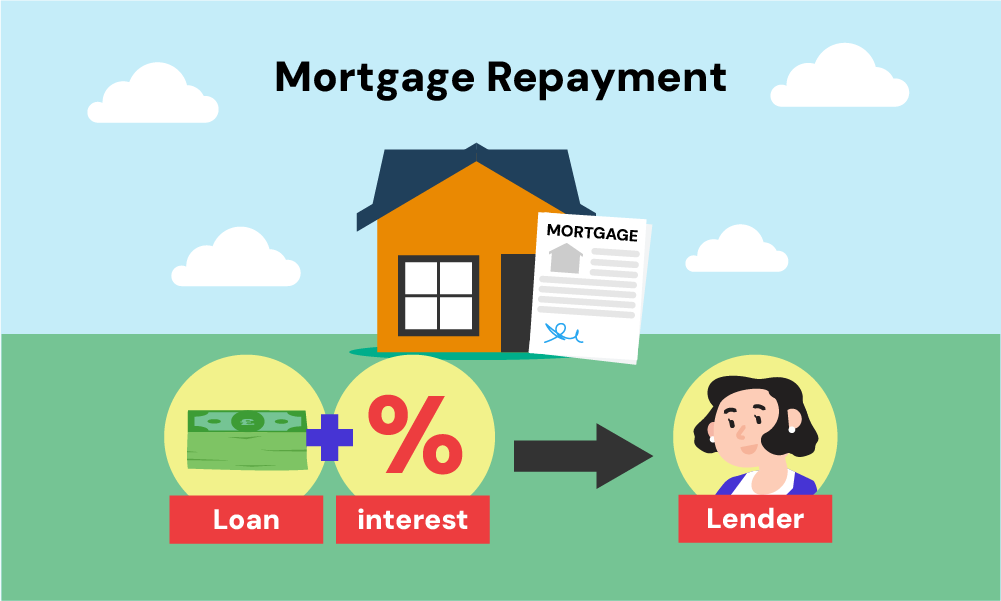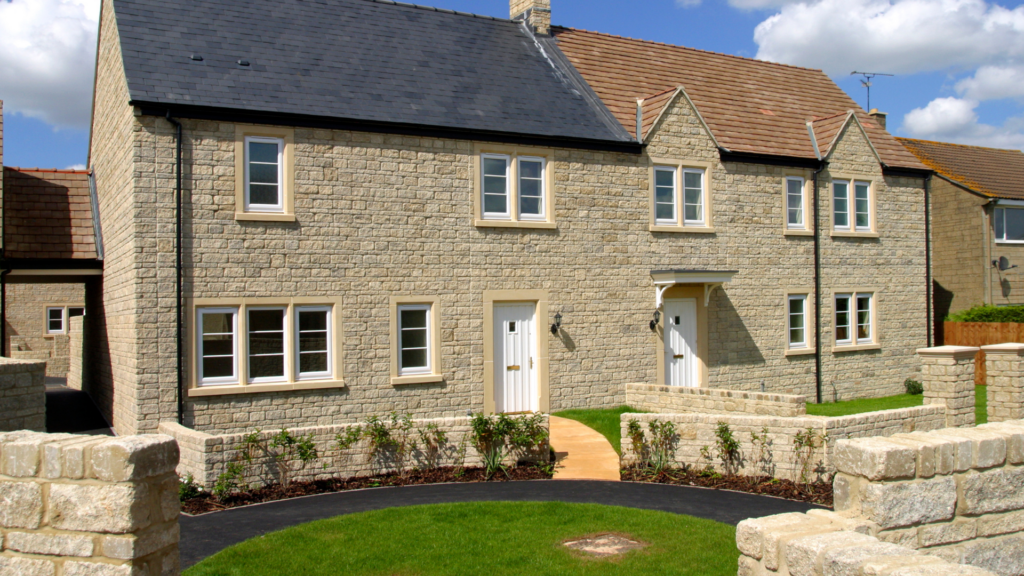- What is a Mortgage Repayment?
- Types of Mortgage Repayment Plans
- Can You Get a £20,000 Mortgage?
- How Much is a £20,000 Mortgage Per Month?
- Whatâs the Best Term for a £20,000 Mortgage?
- How Much Do You Need to Earn for a £20,000 Mortgage?
- Do You Need a Deposit for a £20,000 Mortgage?
- What Factors Affect Your Monthly Repayments?
- Can You Get a £25,000 Mortgage?
- How to Manage Your Mortgage Repayments
- What Happens if You Miss Payments?
- Key Takeaways
- The Bottom Line: How to Choose the Right Mortgage for You
How Much is a £20,000 Mortgage Per Month in the UK?

Taking out a mortgage is one of the biggest financial commitments most people will ever make. But what if you’re only looking to borrow a smaller amount—say, £20,000?
Whether it’s for home improvements, a small property, or topping up existing borrowing, understanding the repayments is key to making the right decision.
So, how much would a £20,000 mortgage cost, and what do you need to consider before taking the plunge?
Let’s break it down in a way that makes sense and keeps things simple.
What is a Mortgage Repayment?
A mortgage repayment is simply the amount of money you pay back to your lender each month for borrowing the money to buy your home. It’s not just the loan amount, though—it also includes interest.
So, every month, you’re paying a little bit towards the original loan (called the capital) and the interest charged on it.
If you’ve got a repayment mortgage, by the end of the term, you’ll have paid off both the loan and the interest.

Types of Mortgage Repayment Plans
There are two main types of mortgage repayment plans:
- Repayment Mortgage – This is the most common option. Each month, you pay off a portion of both the principal and the interest. By the end of the mortgage term, you will have paid off the entire loan.
- Interest-Only Mortgage – With this plan, you only pay off the interest each month. This means your monthly payments are lower. But, the principal remains the same, so at the end of the term, you must repay the full loan amount. This option requires careful planning to ensure you can pay off the loan when it’s due.
Can You Get a £20,000 Mortgage?
Yes, you can absolutely get a £20,000 mortgage, but it’s considered a small loan in the mortgage world.
Some lenders have minimum loan amounts, usually around £30,000, but don’t worry—there are plenty of others willing to offer you a £20,000 mortgage.
If you’re borrowing this amount, it could be because you need a top-up to complete your home purchase, or maybe you’re looking to do some home improvements.
Either way, it’s worth chatting to a mortgage broker, as they’ll know which lenders are happy to lend smaller amounts like this. That way, you can avoid hitting any roadblocks.
How Much is a £20,000 Mortgage Per Month?
When you take out a £20,000 mortgage, how much you’ll pay each month depends on a few key things like the length of your mortgage, the interest rate, and whether it’s a repayment or interest-only mortgage.
Let’s say you go for a £20,000 mortgage over 10 years at an interest rate of 5%. Your monthly payment would be around £212.
If you prefer smaller monthly payments, you could stretch it out to 15 or 25 years.
For a 25-year term, your payment could drop to around £117 per month. But remember, the longer the term, the more interest you’ll end up paying overall.
Here’s an overview of how much you’ll pay each month for £20,000 mortgage:
| Term | 2% Rate | 3% Rate | 4% Rate | 5% Rate | 6% Rate |
|---|---|---|---|---|---|
| 5 years | £350.56 | £359.37 | £372.86 | £377.42 | £386.66 |
| 10 years | £184.03 | £193.12 | £207.28 | £212.13 | £222.04 |
| 15 years | £128.70 | £138.12 | £153.00 | £158.16 | £168.77 |
| 20 years | £101.18 | £110.92 | £126.53 | £131.99 | £143.29 |
| 25 years | £84.77 | £94.84 | £111.17 | £116.92 | £128.86 |
Not sure exactly how much you’d be paying? You can always use our repayment mortgage calculator to get a quick idea.
It’s a handy tool that’ll show you your monthly payments based on the loan length and interest rate you pick.
What’s the Best Term for a £20,000 Mortgage?
Deciding on the right mortgage term is a balancing act.
The shorter the term, the higher your monthly payments, but you’ll pay less overall.
For example, with a £20,000 mortgage over 10 years, you’ll have higher monthly payments but will clear the debt quicker and pay less interest.
On the flip side, if you spread the cost over 25 or 30 years, your monthly payments will be much smaller—great for cash flow—but you’ll end up paying more in total.
It’s all about finding the sweet spot that works for your budget.
How Much Do You Need to Earn for a £20,000 Mortgage?
Now, let’s talk about income. How much do you need to earn to be approved for a £20,000 mortgage?
Well, most lenders in the UK will offer around 4 to 4.5 times your salary, sometimes stretching to 5 or even 6 times depending on the lender.
That means you’ll need to be earning at least £5,000 annually to qualify, which is pretty doable for most.
But, if you’re not sure where you stand, don’t worry.
A good mortgage broker can help you figure out if you qualify and even improve your chances of approval by finding lenders who specialise in smaller loans.

Do You Need a Deposit for a £20,000 Mortgage?
For a £20,000 mortgage, you’ll still need a deposit, and typically, lenders in the UK expect 5% to 10% of the property’s value.
If you’re borrowing £20,000 as a top-up or part of a bigger loan, you may need to show a larger deposit to reassure the lender.
For example, if you’re looking to buy a property worth £100,000, a 5% deposit would be £5,000, leaving you needing a £95,000 mortgage.
That £20,000 mortgage might be part of the solution if you already have a large deposit saved.
What Factors Affect Your Monthly Repayments?
There’s no one-size-fits-all approach when it comes to mortgages.
Several factors can influence your monthly payments, and knowing these upfront can help you make smarter decisions.
- Interest Rates. A higher rate means higher monthly payments. If you’re offered a deal at 5%, your repayments will be lower than if you were offered 6%. Keep an eye on those rates.
- Mortgage Type. Choosing between repayment and interest-only mortgages can also affect your costs. With a repayment mortgage, you’re paying off both the interest and the loan amount (the capital), while an interest-only mortgage covers just the interest, meaning lower monthly payments but a big bill at the end to pay off the loan.
- Term Length. As mentioned earlier, the length of your mortgage plays a massive role. A longer term means smaller payments, but more interest paid over the loan’s life.
- Credit History. Lenders will always check your credit report. A strong credit score could help you secure better interest rates and lower repayments, while a poor score could mean higher rates or fewer loan options.
Can You Get a £25,000 Mortgage?
Maybe you’re thinking about borrowing a bit more—let’s say £25,000 instead of £20,000. The good news is, the principles are the same.
A £25,000 mortgage would mean slightly higher monthly payments, of course.
For instance, if you borrowed £25,000 over 10 years at 5%, your monthly payment would be around £265.
So, if you think a little extra borrowing might cover all your needs, it’s definitely worth considering.
How to Manage Your Mortgage Repayments
Managing your mortgage doesn’t have to be stressful. With a bit of planning and smart habits, you can stay on track and save money.
First, set a budget and make your mortgage payment a priority. Automating payments can help you stay on top of things.
If your income changes, adjust your spending to keep your repayments manageable.
Next, consider paying extra on your mortgage, if allowed. Even small extra payments can save you money on interest. But check if there are any early repayment fees.
It’s also a good idea to review your mortgage regularly. Interest rates can change, so you might be able to find a better deal.
Consider remortgaging to get a lower rate. A mortgage broker can help you find the best option without any hassle.
What Happens if You Miss Payments?
Missing a mortgage payment can be stressful, but it’s important to know what to do.
If you miss a payment, your lender will usually contact you. You’ll have time to catch up, but it’s important to act quickly. Missing several payments can lead to extra fees or damage your credit score.
If you think you’ll struggle to make future payments, talk to your lender as soon as possible. They might offer solutions like a payment break or adjusting your repayment plan.
The worst-case scenario is repossession, but this is only after many missed payments and if nothing else works. Most lenders would rather help you before it gets to that point.
So, if you miss a payment, don’t ignore it. Act fast, talk to your lender, and find a solution. You’ll be back on track in no time.
Key Takeaways
- A £20,000 mortgage can cost as little as £117 per month over 25 years or £212 per month over 10 years, depending on interest rates and terms.
- You’ll need a minimum annual income of £5,000 to qualify, with most lenders offering 4 to 4.5 times your salary.
- Deposits of 5% to 10% are typical, though higher deposits may be required in certain circumstances.
- Interest rates, term length, and credit history all impact your monthly repayments.
- Missing payments can lead to extra fees or harm your credit score. Contact your lender if you’re struggling—they may offer solutions to help.
- Using a mortgage broker can help you find the best deals and make the process smoother.
The Bottom Line: How to Choose the Right Mortgage for You
Choosing the right mortgage can be confusing. So we highly recommend using a qualified mortgage broker, especially if you’re looking for a smaller loan, like £20,000 or £25,000.
Whole-of-market mortgage brokers know which lenders are most likely to offer these loans and can help you secure the best rates. They also have insider knowledge on special deals that you might not find on your own.
On top of that, a broker will handle all the paperwork and make the whole process much easier for you.
In short, a broker will take the stress out of choosing the right mortgage and help you get the best deal. You’ll have peace of mind knowing you’re in good hands.
Get in touch and we’ll connect you with the right mortgage broker who can secure the best deal for you.
Get Matched With Your Dream Mortgage Advisor...

Frequently asked questions
How do interest rates affect my monthly payments?
Interest rates play a big role in how much you pay each month for your mortgage. Higher rates mean bigger payments, while lower rates mean smaller payments.
If you have a fixed-rate mortgage, your payments stay the same no matter what happens to interest rates.
But with a variable-rate mortgage, your payments can go up or down depending on the market.
It’s important to pay attention to the interest rate you’re offered, as even a small difference can add up over time.
What happens if I want to repay my mortgage early?
You can pay off your mortgage early, but there might be early repayment charges (ERCs), especially if you have a fixed-rate mortgage.
Check your mortgage agreement or talk to your lender to find out if there are any costs. Paying off your mortgage early can save you money on interest in the long run, but be sure to consider any potential fees before deciding.
Can I change my repayment type later?
Yes, you can change your mortgage repayment type, but your lender might have rules. You’ll need to check with them to see if there are any conditions, especially if you want to switch to an interest-only mortgage.
Be aware that there might be fees involved, so it’s best to talk to a mortgage advisor or your lender before making any changes.




